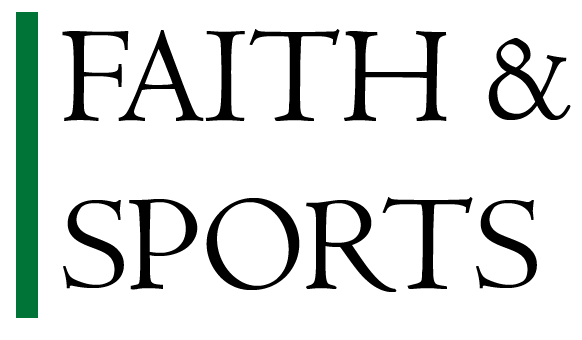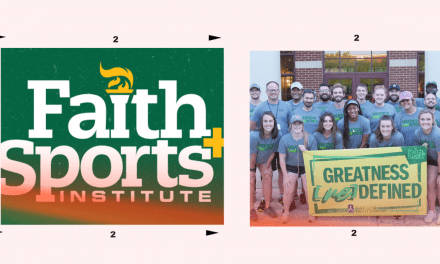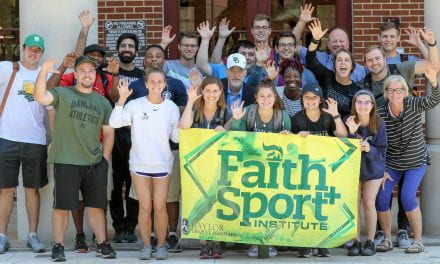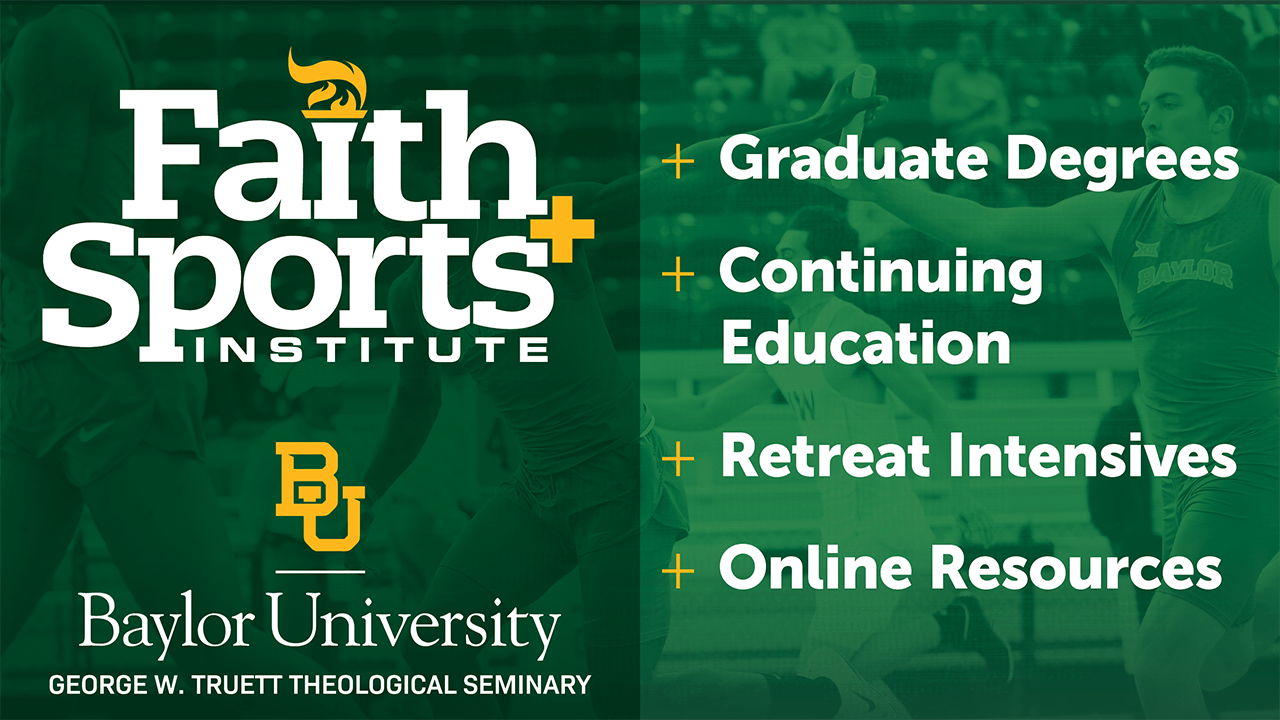Nick Davila is one of the best players in Arena Football League history. The left-handed quarterback from California played for the University of Cincinnati before joining the AFL’s Arizona Rattlers in 2010. Nicknamed the “Latin Laser” because of his passing accuracy and his Mexican-American identity, over the next seven years he won three AFL MVP awards and three AFL championships while throwing for over 30,000 yards and 770 touchdowns.
Davila’s life has been marked by resilience through extreme highs and lows both on and off the field. He was a star football and baseball player in high school, but an injury his senior year limited his major college athletic opportunities. He went to junior college instead, eventually earning a scholarship to Cincinnati. While his AFL career was filled with remarkable success, in 2018 Davila suffered a career-ending neck injury.
Off the field, he and his wife Jessica have six children, including triplets born in 2019. But he has also experienced devastating tragedy, including in 2014 when his father passed away in the middle of the football season.
Earlier this year I sat down with Davila to talk about faith, family, and the difficult transition from a successful athletic career to a retirement brought on by injury.
PAUL PUTZ: What role did faith play in how you approach sports?
NICK DAVILA: I think it played a huge role. As a quarterback you have to put trust into your linemen, trust into the play, trust into a lot of things. So I think it correlates really well with trusting in God. And I’ve always been able to lean on that. It was really important to me, being a part of the Bible study with our team every Thursday and focusing on being a well-rounded person. Football is just another part for me to try to express that.
Do you have any significant moments in your faith journey, times in your life where you really had to rely on that trust in God?
I think it was when my dad passed away in 2014 during the season with the Arizona Rattlers. Having my father in that situation go through his sickness and pass away really put things in perspective. He was kind of the backbone, the main resource for me to have a relationship with Jesus. Reading Scripture every day, fasting, I started doing those things more.
Going through that time helped me understand that I had a purpose more than just playing football, and that was to make sure that my children have a relationship with God. And that was something as a child that I didn’t understand. That’s something that me and my father grew into understanding—you know, having a relationship more than anything is the key to living a good life.
As a Mexican-American football player, do you see that as a central part of your public identity? You were given the nickname “Latin Laser” so it’s part of how others perceive you. But is that something you were intentional about representing?
I’ve always thought that I’ve got to be a good example for the younger generation—in general, but also for Latinos because I’ve always wanted to be an athlete that my younger cousins or the younger people in our community can look up to. So, yeah, I’m very proud to be a Mexican American.
My mother likes to say I have good feet in the pocket because she’d make me do folklórico dancing. I did that for like four years. And I used to get all upset because I didn’t want to do it. But I think it really did help out as a quarterback.
I have a lot of family members that were involved in social activism for the Hispanic community, too. I have an uncle who was a professor. When they talk about Mexican Americans on the History Channel, he’s always a professor they’re talking to. I have a couple people in my family who are scholars, and I actually got my degree in history as well. So that’s been an influence on me.
What about athletic influences? What athletes did you admire growing up?
You don’t really see too many Mexican Americans in football. It’s more common to play baseball, soccer, boxing, stuff like that. There were a couple Mexican quarterbacks I knew about growing up. Tom Flores from the Raiders. Jim Plunkett. There was a couple, but there were more offensive lineman. Anthony Muñoz was a Hall of Fame tackle for the Bengals. He grew up a couple cities down from where I lived.
My father was a pretty good athlete. He was a pitcher, but he didn’t play football too much. I also had a lot of older cousins. I was the youngest of my family of boys, so there were a lot of older cousins that played football or that I looked up to as an athlete.
But as far as how I played, in football I liked Steve Young, even though I was a Raiders fan, and Brett Favre. Those two quarterbacks are really the guys I looked up to. The way they played. The love. The passion. You can see it. That’s how I tried to play.
You’ve spent most of your adult life playing high level football, and with that has come a lot of highs and lows. Tell me about your marriage and your family and how that has been a source of strength for you, both during your career and after?
I’m thankful that I have a wife that’s been by my side. She’s the ultimate tough girl in our family. And I’m blessed with five boys and a girl.
Those relationships have given me an understanding and have allowed me to just try to be a good leader for my children now that I’m retired and missing that void of playing football and the fans. That transition is always tough when you’ve had a lot of success. If I didn’t have my faith and if I didn’t have the love of my wife and children, I don’t know where I would be today. Because it was a hard transition for me, especially getting injured, breaking my neck on the field. I could have easily said, why me? But at the end of the day I had faith I was supposed to be here for a reason. And that reason is to raise five boys and my daughter and to show them the relationship I have with Jesus.
And I continue to have that focus. I truly believe that things happen for a reason, you know? And I think now we’re in a position where we’re watching our beautiful children grow. And having triplets, we were blessed to be able to have them healthy. We thank God for that every day.
I’m just very blessed to be here and to be able to spread the good word to my children and pass that down to them like my father was trying to do towards the end of his life.
You brought up your neck injury, which happens in 2018. What are your memories of the immediate aftermath? Your thoughts, your fears?
When it happened, it was just kind of a blur a little bit. Looking back I didn’t realize how dangerous or how close I got to being completely paralyzed or worse. It was a blessing that I was able to come out of that.
I’m still doing rehab. I’m probably going to have to do rehab for the rest of my life. I have about fourteen screws and two rods and a plate in there. So it wasn’t a minor injury. It was a huge injury for a guy as young as I was at the time. It’s still kind of fresh to talk about. I’m just so thankful that I’m able to walk and talk and do all the normal things.
I have pain every day, but you fight through it. And you focus on Scripture. And now I’m blessed with five little boys and a girl, and I just try to focus on that.
If my boys decide to play football, great. I’ll support them. But I want them to focus on Jesus number one, and have a true relationship with Him. And everything else will work out. As I look back, I think that’s the number one thing I learned from that experience: making sure that I put God first and have my children understand that.
You mentioned reading the Bible and relying on Jesus to help you through the pain of your injury. Are there any particular spiritual disciplines or practices that you’ve developed during this time?
One thing I did is I started a journal. After the whole situation of almost passing away on the football field, I wanted to make sure that my children knew what was going on inside of me as a father, as a man, as an athlete, as a man of God. And so I have a book that I write in. And it’s not always about Scripture. It’s about life. It’s about what I’m feeling a certain time of day. But it always tends to roll back to the values of what I’ve learned through reading the Bible. And it’s a great way to express myself personally with my children. I plan to do it for the rest of my life, to help them grow in their faith and just be well-rounded people of love and kindness and appreciation of one another.
What was the inspiration for getting that journal? Was it something you were encouraged to do or had seen others do?
I think my mother-in-law was seeing me go through the trials and tribulations with the struggles of what’s next. I’ve trained my whole life to be a football player or an athlete, and a lot of people don’t talk about that transition as much as they need to. And she’s such a smart and wise woman and journaling was something that she felt worked for her. So she got me a journal. I started three months ago and I’ve really liked it.
Everyone goes through trials and tribulations. Me and my oldest son watched the Michael Jordan documentary earlier this year. And in one of the episodes Jordan talked about how he’s missed so many shots, but that didn’t stop him from taking the next shot. And it’s the same thing in life. I’ve learned a lot more from my losses than I have from my wins, and I’ve won a lot of games. But right now I’m just trying to focus on being a good father, and that’s where writing helps me put things in perspective.
Is there a particular scripture that you’ve held fast to recently?
I’ve always liked “as iron sharpens iron.” That’s one of my favorite scriptures to focus on because it’s a little bit of a warrior mindset or man-to-man mindset that I’ve always gravitated to. Having all these boys now, I want to make sure that they understand that we’re all in this together as a family.
Right now I’ve also been thinking about the verse in Mark chapter 9 verse 23, “Anything is possible, if a person believes.” I just love to hear things like that. And I’ll write verses like that up on our grease board at our kitchen table.
What are your hopes for future? What do you want next as you continue to transition out of your injury and retirement as an athlete?
I just hope to be healthy. I’ve set my mind to start work, whether that be teaching and coaching or if it’s in the business world. I know I’m a hard worker and I’ll get it done. I want my kids to see that I’ve been through a lot and I’ve been able to focus on the positive and fight through it. I think the main thing is just showing love to people. I think that’s the best way you can change the world. You know, my grandmother would tell us you attract more flies with honey than you do with vinegar. And I think we all can focus more on that in America or in the world, be more like Christ. And I think if we did that we’d have a better place for our children to live.
Follow Nick Davila on Instagram @nickdavila10





